Fleurs du Mal Magazine


Or see the index
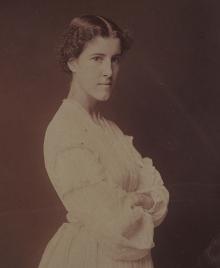
Girls of to-day
Girls of today! Give ear!
Never since time began
Has come to the race of man
A year, a day, an hour,
So full of promise and power
As the time that now is here!
Never in all the lands
Was there a power so great,
To move the wheels of state,
To lift up body and mind,
To waken the deaf and blind,
As the power that is in your hands!
Here at the gates of gold
You stand in the pride of youth,
Strong in courage and truth,
Stirred by a force kept back
Through centuries long and black,
Armed with a power threefold!
First: You are makers of men!
Then Be the things you preach!
Let your own greatness teach!
When Mothers like this you see
Men will be strong and free–
Then, and not till then!
Second: Since Adam fell,
Have you not heard it said
That men by women are led?
True is the saying–true!
See to it what you do!
See that you lead them well.
Third: You have work of your own!
Maid and mother and wife,
Look in the face of life!
There are duties you owe the race!
Outside your dwelling-place
There is work for you alone!
Maid and mother and wife,
See your own work be done!
Be worthy a noble son!
Help man in the upward way!
Truly, a girl today
Is the strongest thing in life!
Charlotte Perkins Gilman
(1860-1935)
Girls of to-day
Suffrage Songs and Verses
• fleursdumal.nl magazine
More in: # Classic Poetry Archive, Archive G-H, Archive G-H, Feminism
PARK is een kunstinitiatief opgericht in 2013 door Rob Moonen in samenwerking met een zestal andere Tilburgse kunstenaars. Op dit moment bestaat de PARK werkgroep uit Linda Arts, René Korten, Rob Moonen en Liza Voetman.
PARK ziet de noodzaak van een middenpodium dat zich positioneert tussen Kunstpodium T en Museum De Pont en zet zich daarvoor in door een tentoonstellingsprogramma in de voormalige Goretti-kapel aan het Wilhelminapark te Tilburg te realiseren.
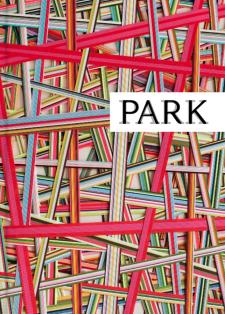 PARK richt zich op actuele ontwikkelingen binnen de hedendaagse kunst én op kunstenaars met gedegen ervaring en bewezen kwaliteit. Er wordt plek geboden aan regionale collega’s maar ook aan landelijk of internationaal opererende kunstenaars, juist om een positieve bijdrage aan de discussie over actuele kunst tot stand te brengen.
PARK richt zich op actuele ontwikkelingen binnen de hedendaagse kunst én op kunstenaars met gedegen ervaring en bewezen kwaliteit. Er wordt plek geboden aan regionale collega’s maar ook aan landelijk of internationaal opererende kunstenaars, juist om een positieve bijdrage aan de discussie over actuele kunst tot stand te brengen.
De werkgroep ambieert het podium van belang te laten zijn op landelijk niveau, maar bij elk project wordt met nadruk gezocht naar een inhoudelijke koppeling met de stad. De werkgroep is er van overtuigd dat samenwerking met andere partijen de zichtbaarheid en functionaliteit van de plek zal versterken, maar ook dat de plek een waardevolle stimulans voor de beeldende kunst in de stad en de regio zal kunnen zijn.
PARK wil een bijdrage leveren aan de ontwikkeling van een gunstig productie- en vestigingsklimaat voor beeldend kunstenaars uit de regio door deze in contact te brengen met een nationaal en internationaal netwerk.
Per jaar worden er vier a vijf projecten en een zomerresidentie gerealiseerd met waar mogelijk een bijpassend raamprogramma in de vorm van lezingen, kunstenaarsgesprekken, muziek en film.
Nieuw boek over activiteiten PARK
PARK maakte een boek waarin alle tentoonstellingsprojecten, alle ongeveer 200 deelnemende kunstenaars en alle extra activiteiten in de periode 2018-2020 aan bod komen.
Het rijk-geïllustreerde full-colour boek, met teksten van Anneke van Wolfswinkel en Rob Moonen in Nederlands en Engels, is vormgegeven door Berry van Gerwen. Het telt ruim 200 pagina’s en verschijnt in een oplage van 600 stuks.
Het is de opvolger van de eerder verschenen boeken ‘PARK 2013-2015’ en ‘PARK 2016-2018’.
Het boek kost € 17,50 exclusief eventuele verzendkosten. Verzendkosten binnen Nederland bedragen € 5,- per exemplaar, binnen Europa € 10,- per exemplaar.
Alle tentoonstellingsprojecten, alle ongeveer 200 deelnemende kunstenaars en alle extra activiteiten in de periode 2018-2020 komen aan bod.
Het rijk-geïllustreerde full-colour boek, met teksten van Anneke van Wolfswinkel en Rob Moonen in Nederlands en Engels, is vormgegeven door Berry van Gerwen. Het boek telt ruim 200 pagina’s en verschijnt in een oplage van 600 stuks.
De normale verkoopprijs van één exemplaar is € 17,50 inclusief 9% BTW, exclusief verzendkosten.
Korting bij aanschaf van meerdere exemplaren:
Twee exemplaren voor € 30,-
Drie exemplaren voor € 40,-
Bestellen: zie adres website. Verzendkosten binnen Nederland bedragen € 5 per exemplaar. Voor verzendkosten naar het buitenland kunt u contact opnemen via de website. U kunt het boek ook ophalen tijdens de reguliere openingstijden.
Deelnemende kunstenaars / participating artists:
Piet Dieleman, Jan van der Ploeg, Beat Zoderer, Koen Delaere, Ide André, Toine Horvers, Niko de Wit, Marina Visic, Tineke Schuurmans, Paul van Rijswijk, Chantal Rens, Tyrell Kuipers, Stijn Kriele, Pim Kersten, Jasper van Aarle, Ien Lucas, Jochem Rotteveel, Jonathan van Doornum, Stefan Cammeraat, Bart Hess, Jenny Holzer, Mark Manders, Johan Tahon, Guus Voermans, Stan Wannet, Jenny Ymker, Bram van Helden, Nick Steur, Ienke Trinks, Wild Vlees, Thomas Swinkels, Ronald de Bloeme, Olaf Holzappel, Jonas Wijtenburg, Tom Claassen, Roland Sohier, Hans Klein Hofmeijer, Ronny Delrue, Florette Dijkstra, ArpaÏs De Bois, Heringa / Van Kalsbeek, Wiesje Peels / Steffen Maas, Lennart Lahuis, Lieven Segers, Koen Vermeulen, Renée van Trier, Bram Braam, Anneke Eussen, Astrid Abels, Hans van Asch, Linda Arts, Atelier La Machine, Niels Ballemans, Simon Benson, Fieke van Berkom, Tarek Beshta, Gam Bodenhausen, Claudia den Boer, Peter Bouwmans, Danielle van Broekhoven, Helmie Brugman, Aurelia van der Burght, Liesbeth Bijkerk, Ruud de Caluwe, Mark Cohen, Michiel Corten, Lennart Creutzburg, Steve Cromsigt, Michaela Davidova, Femke Dekkers, Cor van Dixhoorn, Vince Donders, Miek van Dongen, Paul van Dongen, David Engel, Jacomijn den Engelsen, Jesse Fischer, Kirsty Fletcher, Frans Franssen, Alexandra Fraser, Fred Geven, Eefje Goos, Nan Groot Antink, Vincent Hagnauer, Coen van Ham, Janine Hendriks, Caren van Herwaarden, Jola Hesselberth, Marianne van Hest, Jolijn van den Heuvel, Mark van den Heuvel, Menno Heijstek, Florence Husen, Wanda Janota, Bas Ketelaars, Gaston Klein, Hanneke Klinkum, Kees van der Knaap, Marja Koenraad, Guus Koenraads, Jordy Koevoets, Lucia Koevoets, René Korten, José Krijnen, Liedeke Kruk, Judith Kuijpers, Tyrell Kuipers, Marjolein Landman, Anna Lange, Ivo van Leeuwen & Sander Neijnens, Danielle Lemaire, Sarah Linde, Gijs van Lith, Margriet Luyten, Mainkunstenaars, Fons Manders, Saskia de Marée, Vincent McGourty, Janus Metsaars, Vera Meulendijks, Jolanda Moolenaar, Rob Moonen, Wiebo van Mulligen, Remy Neumann, Bertil Neijts, Toos Nijssen, Dineke van Oosten, Frits Peeters, Brigitte Picavet, Carola Popma, Har van der Put, Just Quist, Claudette van de Rakt, Anke Reevers, Chantal Rens, Stijn Rompa, Frans van Santvoort, Lilia Scheerder, Ro-Nalt Schrauwen, Ron Schöningh, Eef Schoolmeesters, Karin Schreppers, Lydia Scheurleer, Ies Schute, Lucas Silawanebessy, Ingrid Simons, Yda Sinay, Ian Skirvin, Roel Sloot, Rob Smulders, Joran van Soest, Ine van Son, Bo Stokkermans, Jos van der Sommen, Lise Sore, Francine Steegs, Nick J. Swarth, Asha Swillens, Anna Marie van Thiel de Vries, Hugo Tieleman, Sabina Timmermans, Renée van Trier, Lieke Tripaldelli, Mieke Van den Hende, Guus van der Velden, Leopold van de Ven, Nina van de Ven, Dieke Venema, Erik Vermeulen, Cecile Verwaaijen, Judith de Vet, Josine Vissers, Roos Vogels, Ruth de Vos, Roger Walschots, Marie-Louise Wasiela, Hanneke Wetzer, Tine van de Weyer, Bas Wiegmink, Yvonne Willemse, Hans de Wit, Emmy Zwagers.
• PARK 2018-2020
• nieuwe uitgave PARK Tilburg 2021
P A R K
Wilhelminapark 53, 5041 ED Tilburg
park(at)park013.nl
https://park013.nl/nl/contact
Twitter.com/ParkTilburg
Facebook.com/Park013
https://www.instagram.com/park_tilburg/
Tijdens tentoonstellingen geopend:
vrijdag 13.00 – 17.00 uur
zaterdag 13.00 – 17.00 uur
zondag 13.00 – 17.00 uur
Toegang is gratis
PARK ligt op 10 minuten loopafstand van het Centraal Station Tilburg in de nabijheid van Museum De Pont. Er is beperkt parkeergelegenheid voor de deur.
PARK
Rob Moonen, Linda Arts, René Korten, Liza Voetman
Graphic design: Berry van Gerwen, Breda
Supported by: Gemeente Tilburg, KunstLoc, provincie Noord Brabant, Mondriaan Fonds
• fleursdumal.nl magazine
More in: - Book News, Architecture, Archive O-P, Art & Literature News, Art Criticism, AUDIO, CINEMA, RADIO & TV, Exhibition Archive, Linda Arts, Park
Aline Sitoé Diatta naît en 1920, au beau milieu des forêts luxuriantes de la Casamance, dans le sud du Sénégal.
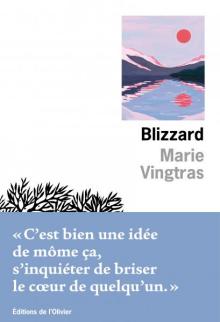 Enfant déterminée, puis adolescente indépendante, solitaire et douce, elle quitte la brousse pour se rendre à Dakar afin d’y travailler comme gouvernante dans une famille de colons. C’est là qu’elle entend, pour la première fois, des voix qui lui ordonnent de rentrer chez elle pour libérer son peuple.
Enfant déterminée, puis adolescente indépendante, solitaire et douce, elle quitte la brousse pour se rendre à Dakar afin d’y travailler comme gouvernante dans une famille de colons. C’est là qu’elle entend, pour la première fois, des voix qui lui ordonnent de rentrer chez elle pour libérer son peuple.
Prônant la désobéissance civile et la non-violence, Aline appelle les Sénégalais à lutter pour leurs terres et le respect qui leur reviennent de droit. S’entourant des anciens, comme le veut la tradition diola, écoutant les conseils de son sage ami Diacamoune, la jeune femme est vite érigée en icône de la résistance, magnétique et insoumise, et est sacrée reine.
Menaçant l’ordre établi et mettant à mal l’administration française, Aline, la « Jeanne d’Arc du Sénégal », devient l’ennemie à abattre, mettant, dès lors, sa jeune vie en danger. À travers Aline, Karine Silla renoue avec l’histoire de ses origines et fait entendre la musique de tout un pays grâce à son écriture aussi envoûtante et inspirante que la voix de cette femme de lutte et de coeur qui, plus jamais, ne nous quittera.
Karine Silla est dramaturge, réalisatrice et scénariste. Aline et les hommes de guerre est son quatrième roman. Née à Dakar, elle vit à Paris.
# new books
Aline et les hommes de guerre Broché
de Karine Silla (Auteur)
Livre grand format
Broché
2020
ASIN: B086L1HT7P
Éditeur: L’OBSERVATOIRE (19 août 2020)
Langue: Français
304 pages
ISBN-13: 979-1032908464
Dimensions: 14.1 x 2.7 x 20.1 cm
€ 20,00
• fleursdumal.nl magazine
More in: - Book News, - Bookstores, African Art, Archive S-T, Art & Literature News, WAR & PEACE

La pluie
Enfin la haute Providence
Qui gouverne à son gré le temps,
Travaillant à notre abondance
Rendra les laboureurs contents :
Sus ! que tout le monde s’enfuie,
Je vois de loin venir la pluie,
Le ciel est noir de bout en bout
Et ses influences bénignes
Vont tant verser d’eau sur les vignes
Que nous n’en boirons point du tout.
L’ardeur grillait toutes les herbes,
Et tel les voyait consumer
Qui n’eût pas cru tirer des gerbes
Assez de grain pour en semer.
Bref, la terre, en cette contrée,
D’une béante soif outrée,
N’avait souffert rien de pareil
Depuis qu’une audace trop vaine
Porta le beau fils de Climène
Sur le brillant char du soleil.
Mais les dieux mettant bas les armes
Que leur font prendre nos péchés,
Veulent témoigner par des larmes
Que les nôtres les ont touchés :
Déjà, l’humide Iris étale
Son beau demi-cercle d’opale
Dedans le vague champ de l’air
Et, pressant mainte épaisse nue,
Fait obscurcir à sa venue
Le temps qui se montrait si clair.
Ces pauvres sources épuisées
Qui ne coulaient plus qu’en langueur,
En tressaillent comme fusées
D’une incomparable vigueur ;
je pense, à les voir si hautaines,
Que les eaux de mille fontaines
Ont ramassé dedans ces lieux
Ce qui leur restait de puissance
Pour aller par reconnaissance
Au devant de celles des cieux.
Payen, sauvons-nous dans ta salle
Voilà le nuage crevé ;
O, comme à grands flots il dévale !
Déjà, tout en est abreuvé.
Mon Dieu ! Quel plaisir incroyable !
Que l’eau fait un bruit agréable
Tombant sur ces feuillages verts !
Et que je charmerais l’oreille
Si cette douceur non pareille
Se pouvait trouver en mes vers !
Çà, que l’on m’apporte une coupe :
Du vin frais, il en est saison ;
Puisque Cérès boit à la troupe,
Il faut bien lui faire raison !
Mais non pas avec ce breuvage
De qui le goût fade et sauvage
Ne saurait plaire qu’aux sablons
Ou à quelque jeune pucelle
Qui ne but que de l’eau comme elle
Afin d’avoir les cheveux blonds.
Regarde à l’abri de ces saules
Un pèlerin qui se tapit :
Le dégoût perce ses épaules
Mais il n’en a point de dépit.
Contemple un peu dans cette allée
Thibaut à la mine hâlée
Marcher froidement par compas ;
Le bonhomme sent telle joie
Qu’encore que cette eau le noie,
Si ne s’en ôtera-t-il pas.
Vois déjà dans cette campagne
Ces vignerons tout transportés
Sauter comme genets d’Espagne
Se démenant de tous côtés ;
Entends d’ici tes domestiques
Entrecouper leurs chants rustiques
D’un fréquent battement de mains ;
Tous les coeurs s’en épanouissent
Et les bêtes s’en réjouissent
Aussi bien comme les humains.
Marc-Antoine Girard de Saint-Amant
(1594 – 1661)
La pluie
• fleursdumal.nl magazine
More in: # Classic Poetry Archive, Archive G-H, Archive G-H, Archive S-T, Archive S-T

An Epigram
The scriptures affirm (as I heard in my youth,
For indeed I ne’er read them, to speak for once truth)
That death is the wages of sin, but the just
Shall die not, although they be laid in the dust.
They say so; so be it, I care not a straw,
Although I be dead both in gospel and law;
In verse I shall live, and be read in each climate;
What more can be said of prime sergeant or primate?
While Carter and Prendergast both may be rotten,
And damn’d to the bargain, and yet be forgotten.
Jonathan Swift
(1667 – 1745)
An Epigram
fleursdumal.nl magazine
More in: Archive S-T, Archive S-T, Swift, Jonathan
Franz Kafka (1883-1924) groeide op in Praag, waar hij deel uitmaakte van de Duitstalige Joodse gemeenschap en aan de rand van het getto woonde.
Hij bezocht het Duitse gymnasium en studeerde aan de universiteit van Praag. Daar ontmoette hij Max Brod, zijn vriend en latere biograaf.
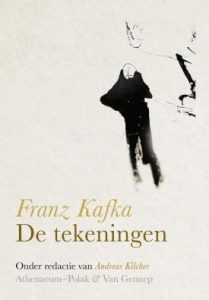 Vanaf 1908 tot 1917 werkte hij als ambtenaar bij een bedrijf dat arbeidsongevallenverzekeringen verzorgde, een baan die hij als een noodzakelijk kwaad beschouwde om zich aan het schrijven te kunnen wijden. Zijn longtuberculose, die hem in 1924 fataal zou worden, deed zich in deze tijd gelden. Gedurende zijn leven had hij enkele korte maar intense relaties, waaronder drie verlovingen, zo blijkt uit enkele postuum uitgegeven brieven. De dames waar hij mee omging komen ook indirect terug in zijn werk. Hij leidde een teruggetrokken leven, maar discussieerde veel binnen de Praagse culturele elite, mede via zijn ‘ontdekker’ Brod.
Vanaf 1908 tot 1917 werkte hij als ambtenaar bij een bedrijf dat arbeidsongevallenverzekeringen verzorgde, een baan die hij als een noodzakelijk kwaad beschouwde om zich aan het schrijven te kunnen wijden. Zijn longtuberculose, die hem in 1924 fataal zou worden, deed zich in deze tijd gelden. Gedurende zijn leven had hij enkele korte maar intense relaties, waaronder drie verlovingen, zo blijkt uit enkele postuum uitgegeven brieven. De dames waar hij mee omging komen ook indirect terug in zijn werk. Hij leidde een teruggetrokken leven, maar discussieerde veel binnen de Praagse culturele elite, mede via zijn ‘ontdekker’ Brod.
Een reconstructie van Kafka’s leven en denken is mogelijk geworden door zijn nalatenschap in de vorm van dagboeken, die hij van 1910 tot 1923 bijhield. Kafka schreef voornamelijk proza, waarvan zijn romans Der Prozess (1925), Das Schloss (1926) en Amerika (1927) de bekendste zijn. Enkele prozavertellingen als Die Verwandlung (1915), Das Urteil (1913) en In der Strafkolonie (1919) hebben later ook hun weg naar het grote publiek gevonden.
Wat Kafka’s werk typeert zijn tegenstellingen als weten en onwetendheid, macht en machteloosheid, loyaliteit en verraad, menselijkheid en verontmenselijking. Hij schetst labyrinten waarin individuen wanhopig naar een uitweg zoeken. De werelden die hij creëert zijn absurd, kennen een heel eigen logica en worden in een droge, zakelijke stijl beschreven. Veel van zijn werk is tijdens zijn leven onvoltooid gebleven, waardoor veel discussie mogelijk is over de bedoelingen van de schrijver. Pas in de jaren dertig van de twintigste eeuw groeide de belangstelling voor zijn werk, dat mede dankzij Max Brod postuum verscheen.
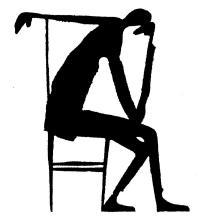 In 2019 werd het Max Brod Archief in de Nationale Bibliotheek van Israël geopend. Tussen de opvallende archiefstukken bevonden zich tot dusver onbekende tekeningen die Franz Kafka maakte in de jaren 1901-1906. Hij tekende, al voor de ontwikkeling van zijn literaire talent, om zich artistiek uit te drukken.
In 2019 werd het Max Brod Archief in de Nationale Bibliotheek van Israël geopend. Tussen de opvallende archiefstukken bevonden zich tot dusver onbekende tekeningen die Franz Kafka maakte in de jaren 1901-1906. Hij tekende, al voor de ontwikkeling van zijn literaire talent, om zich artistiek uit te drukken.
Aan zijn verloofde Felice Bauer schreef hij in 1913: ‘Weet je, ik was ooit een groot tekenaar, maar toen ben ik bij een slechte schilderes schoolse tekenlessen gaan nemen en heb ik mijn hele talent verknoeid. Stel je dat eens voor! […] In die tekeningen heb ik indertijd, het is nu al jaren geleden, meer bevrediging gevonden dan in enige andere bezigheid.’
In Franz Kafka. De tekeningen worden voor het eerst meer dan 200 tekeningen, waarvan 140 nooit eerder zijn gepubliceerd, in een luxe kunstuitgave samengebracht. Deze is samengesteld en van begeleidende essays en een verantwoording voorzien door Andreas Kilcher, Pavel Schmidt en Judith Butler.
Franz Kafka. De tekeningen
Auteur: Franz Kafka
Taal: Nederlands
Vertaald door Willem van Toorn
Uitgever Athenaeum
Hardcover
EAN 9789025313609
1 oktober 2021
336 pagina’s
Illustraties
49,90
# new books
Franz Kafka.
De tekeningen
• fleursdumal.nl magazine
More in: - Book News, - Bookstores, Archive K-L, Archive K-L, Art & Literature News, Franz Kafka, Illustrators, Illustration, Kafka, Franz, Kafka, Franz
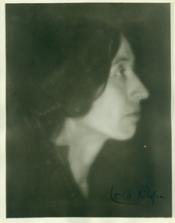
The Fog
Out of the lamp-bestarred and clouded dusk –
Snaring, illuding, concealing,
Magically conjuring –
Turning to fairy-coaches
Beetle-backed limousines
Scampering under the great Arch –
Making a decoy of blue overalls
And mystery of a scarlet shawl –
Indolently –
Knowing no impediment of its sure advance –
Descends the fog.
Lola Ridge
(1873-1941)
The Fog
• fleursdumal.nl magazine
More in: Archive Q-R, Archive Q-R, Ridge, Lola
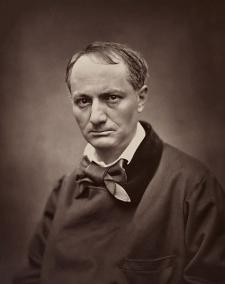
La Béatrice
Dans des terrains cendreux, calcinés, sans verdure,
Comme je me plaignais un jour à la nature,
Et que de ma pensée, en vaguant au hasard,
J’aiguisais lentement sur mon coeur le poignard,
Je vis en plein midi descendre sur ma tête
Un nuage funèbre et gros d’une tempête,
Qui portait un troupeau de démons vicieux,
Semblables à des nains cruels et curieux.
À me considérer froidement ils se mirent,
Et, comme des passants sur un fou qu’ils admirent,
Je les entendis rire et chuchoter entre eux,
En échangeant maint signe et maint clignement d’yeux:
— «Contemplons à loisir cette caricature
Et cette ombre d’Hamlet imitant sa posture,
Le regard indécis et les cheveux au vent.
N’est-ce pas grand’pitié de voir ce bon vivant,
Ce gueux, cet histrion en vacances, ce drôle,
Parce qu’il sait jouer artistement son rôle,
Vouloir intéresser au chant de ses douleurs
Les aigles, les grillons, les ruisseaux et les fleurs,
Et même à nous, auteurs de ces vieilles rubriques,
Réciter en hurlant ses tirades publiques?»
J’aurais pu (mon orgueil aussi haut que les monts
Domine la nuée et le cri des démons)
Détourner simplement ma tête souveraine,
Si je n’eusse pas vu parmi leur troupe obscène,
Crime qui n’a pas fait chanceler le soleil!
La reine de mon coeur au regard nonpareil
Qui riait avec eux de ma sombre détresse
Et leur versait parfois quelque sale caresse.
Charles Baudelaire
(1821 – 1867)
La Béatrice
Fleurs du mal (Flowers of Evil)
• fleursdumal.nl magazine
More in: Archive A-B, Archive A-B, Baudelaire, Les Fleurs du Mal

Lovers
I thought, because we had been friends so long,
That I knew all your dear lips dared intend
Before they dawned to speech. Our thoughts would blend,
I dreamed, like memories that faintly throng.
Your voice dwelt in me like an olden song.
Petal, I thought, from petal I could rend
The blossom of your soul, and at the end
Find still the same sweet fragrance. I was wrong.
Last evening in our eyes love brimmed to birth;
Our friendship faded, lost in passion’s mist.
We had been strangers only! Here, close-caught
Against my heart the dim face I had sought
So long! And now the only thing on earth—
Your piteous mouth, a-tremble to be kissed!
Arthur Adams
(1872-1936)
Lovers
• fleursdumal.nl magazine
More in: Adams, Arthur, Archive A-B, Archive A-B

A Fairy Tale
All things grew upwards, foul and fair:
The great trees fought and beat the air
With monstrous wings that would have flown;
But the old earth clung to her own,
Holding them back from heavenly wars,
Though every flower sprang at the stars.
But he broke free: while all things ceased,
Some hour increasing, he increased.
The town beneath him seemed a map,
Above the church he cocked his cap,
Above the cross his feather flew
Above the birds and still he grew.
The trees turned grass; the clouds were riven;
His feet were mountains lost in heaven;
Through strange new skies he rose alone,
The earth fell from him like a stone,
And his own limbs beneath him far
Seemed tapering down to touch a star.
He reared his head, shaggy and grim,
Staring among the cherubim;
The seven celestial floors he rent,
One crystal dome still o’er him bent:
Above his head, more clear than hope,
All heaven was a microscope.
G. K. Chesterton
(1874-1936)
A Fairy Tale
• fleursdumal.nl magazine
More in: Archive C-D, Chesterton, Gilbert Keith, G.K. Chesterton, Grimm, Andersen e.o.: Fables, Fairy Tales & Stories
Auschwitz. Hiroshima. Cambodia’s killing fields. The World Trade Center. The mass graves of Rwanda.
These places of violent death have become part of the recreational landscape of tourism, an industry that is otherwise dedicated to pleasure and escape. In dark places like concentration camps, prisons, battlegrounds, and the sites of natural disasters, how are memory and trauma mediated by thanotourism, or tourism of death?
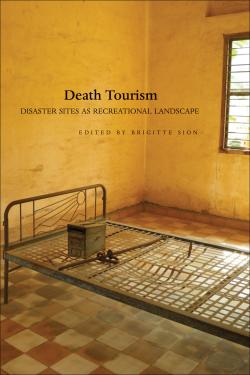 In Death Tourism, Brigitte Sion brings together essays by some of the most trenchant voices in the field to look at the tensions created by the juxtaposition of human remains and food stands, political agendas and educational programs, economic development and architectural ambition.
In Death Tourism, Brigitte Sion brings together essays by some of the most trenchant voices in the field to look at the tensions created by the juxtaposition of human remains and food stands, political agendas and educational programs, economic development and architectural ambition.
How does a state redefine its national identity after catastrophic trauma?
And what is the role of this kind of tourism in defining their new identity?
A timely volume on an irresistible subject, this inquiry exposes the intersection of leisure with the inhumane, giving insight into how people respectfully share a public space that is both free and sacred, compelling and tragic.
Death Tourism.
Disaster Sites as Recreational Landscape
Edited by Brigitte Sion
Seagull Books
Publication Year: 2014
Format: Paperback
Pages: 356
illustrations
2014
ISBN: 9780857421074
$35
# new books
Death Tourism.
Disaster Sites as Recreational Landscape
by Brigitte Sion
• fleursdumal.nl magazine
More in: - Book News, - Bookstores, Archive S-T, Art & Literature News, AUDIO, CINEMA, RADIO & TV, CRIME & PUNISHMENT, Galerie des Morts, Holocaust, REPRESSION OF WRITERS, JOURNALISTS & ARTISTS, WAR & PEACE
Erasmus is een van de grootste auteurs van Nederland en België, en zelfs van heel Europa.
Hij verpersoonlijkt de overgang van de middeleeuwen naar de moderne tijd. Zijn betekenis voor de literatuur- én wetenschapsgeschiedenis is immens.
Erasmus’ duizenden brieven over onderwerpen als gewetensdwang en drukpersvrijheid hebben niets aan zeggingskracht ingeboet.
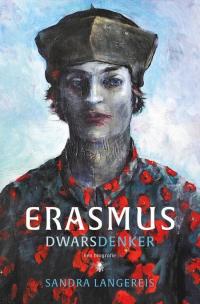 Het grootste deel van Erasmus’ leven en werk bleef tot nu toe onderbelicht. Sandra Langereis is de eerste biograaf die zijn levensverhaal recht doet door zijn enorme briefwisseling op de voet te volgen en de wording van zijn complete literaire erfenis te beschrijven. Ze toont hem als de sprankelende auteur van de Lof der zotheid en als brutale bijbel-wetenschapper die het net zo hevig aan de stok kreeg met inquisiteurs als met Luther.
Het grootste deel van Erasmus’ leven en werk bleef tot nu toe onderbelicht. Sandra Langereis is de eerste biograaf die zijn levensverhaal recht doet door zijn enorme briefwisseling op de voet te volgen en de wording van zijn complete literaire erfenis te beschrijven. Ze toont hem als de sprankelende auteur van de Lof der zotheid en als brutale bijbel-wetenschapper die het net zo hevig aan de stok kreeg met inquisiteurs als met Luther.
Erasmus’ levensverhaal werpt licht op een bewogen tijdvak: een eeuw van felle humor en grof geweld, van religieus fanatisme en strijd voor intellectuele vrijheid. Deze rijke biografie maakt de actualiteit van geschiedenis invoelbaar.
Nooit kwam Erasmus geestiger, slimmer, scherper, dapperder, dwarser, bozer, banger en, in één woord, menselijker in beeld. En niet eerder werd Erasmus’ tijd levendiger voor het voetlicht gebracht dan in deze biografie. Een indringend en ongekend compleet portret van Erasmus.
Sandra Langereis is historicus, biograaf en schrijver. Haar vorige biografie, De woordenaar, over drukker en uitgever Christoffel Plantijn, werd genomineerd voor de Libris Geschiedenis Prijs en door de Volkskrant en Trouw verkozen tot beste biografie en beste geschiedenisboek van 2014.
Dit jaar ontvangt Sandra Langereis de Libris Geschiedenis Prijs 2021 voor haar boek over Erasmus.
 ‘Een boek dat’, aldus de jury, ‘op alle fronten uitblinkt. Een boek dat stoelt op briljant wetenschappelijk onderzoek, dat ondanks zijn omvang tot aan het eind toe meeslepend is, een boek dat je omver blaast.’ Juryvoorzitter Khadija Arib maakte de prijswinnaar van het beste historische boek van 2021 bekend tijdens een speciale live-uitzending van radioprogramma OVT. Aan de Libris Geschiedenis Prijs is een bedrag van 20.000 euro verbonden.
‘Een boek dat’, aldus de jury, ‘op alle fronten uitblinkt. Een boek dat stoelt op briljant wetenschappelijk onderzoek, dat ondanks zijn omvang tot aan het eind toe meeslepend is, een boek dat je omver blaast.’ Juryvoorzitter Khadija Arib maakte de prijswinnaar van het beste historische boek van 2021 bekend tijdens een speciale live-uitzending van radioprogramma OVT. Aan de Libris Geschiedenis Prijs is een bedrag van 20.000 euro verbonden.
De Libris Geschiedenis Prijs bekroont historische boeken die een algemeen publiek aanspreken. Oorspronkelijkheid, leesbaarheid en historische degelijkheid zijn de belangrijkste criteria. De prijs is een initiatief van Historisch Nieuwsblad, Libris, Nederlands Openluchtmuseum, Rijksmuseum Amsterdam, VPRO en Trouw. De prijs is onderdeel van de Maand van de Geschiedenis en wordt traditiegetrouw eind oktober uitgereikt, dit jaar alweer voor de vijftiende keer. Met deze prijs willen de initiatiefnemers een stimulans geven aan het goede historische boek in Nederland.
 De Libris Geschiedenisprijs wordt elk jaar uitgereikt aan de auteur van een historisch boek dat een algemeen publiek aanspreekt. Het boek moet een oorspronkelijk onderwerp hebben, prettig leesbaar zijn en op gedegen historisch onderzoek stoelen. Aan de prijs is een bedrag van € 20.000,- verbonden. Eerder wonnen Pieter van Os (2020), Roelof van Gelder (2019), Frits van Oostrom (2018), Carolijn Visser (2017), Elisabeth Leijnse (2016), Alexander Münninghoff (2015), Dik van der Meulen (2014), Martin Bossenbroek (2013), Bart van den Boom (2012), Jaap Scholten (2011), David Van Reybrouck (2010), Jolande Withuis (2009), Luuc Kooijmans (2008) en Auke van der Woud (2007) de prijs.
De Libris Geschiedenisprijs wordt elk jaar uitgereikt aan de auteur van een historisch boek dat een algemeen publiek aanspreekt. Het boek moet een oorspronkelijk onderwerp hebben, prettig leesbaar zijn en op gedegen historisch onderzoek stoelen. Aan de prijs is een bedrag van € 20.000,- verbonden. Eerder wonnen Pieter van Os (2020), Roelof van Gelder (2019), Frits van Oostrom (2018), Carolijn Visser (2017), Elisabeth Leijnse (2016), Alexander Münninghoff (2015), Dik van der Meulen (2014), Martin Bossenbroek (2013), Bart van den Boom (2012), Jaap Scholten (2011), David Van Reybrouck (2010), Jolande Withuis (2009), Luuc Kooijmans (2008) en Auke van der Woud (2007) de prijs.
Erasmus: dwarsdenker
Een biografie
Auteur: Sandra Langereis
ISBN: 9789403120317
NUR: 321
Gebonden
Aantal pagina’s: 784
Uitgever: De Bezige Bij
Verschijningsdatum: 04-03-2021
Prijs: 39,99
• fleursdumal.nl magazine
More in: #Biography Archives, - Book News, - Bookstores, Archive E-F, Awards & Prizes, Desiderius Erasmus, MONTAIGNE
Thank you for reading Fleurs du Mal - magazine for art & literature